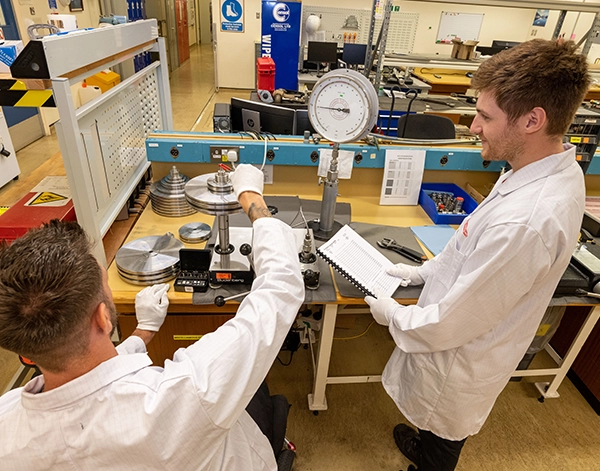Project Controls Professional Degree Apprenticeship
The Project Controls Level 6 Apprenticeship is a comprehensive, higher-level training programme designed for apprentices aspiring to excel in the field of project controls. This apprenticeship equips your apprentices with the skills, knowledge, and professional expertise required to manage and control projects effectively in diverse industries such as construction, engineering, IT, and manufacturing.
What is Project Controls?
Project controls encompass the processes, systems, and tools used to monitor, manage, and steer the successful delivery of projects. This includes areas such as:
- Planning and Scheduling: Ensuring project timelines are realistic and achievable.
- Cost Management: Budgeting and controlling costs throughout the project lifecycle.
- Risk and Opportunity Management: Identifying, assessing, and mitigating risks while capitalizing on opportunities.
- Performance Measurement: Tracking progress against key milestones and objectives.
Project controls professionals play a vital role in ensuring projects are delivered on time, within budget, and to the desired quality standards.

Year One
Apprentices are introduced to project management fundamentals, starting with key terminology from the APM Body of Knowledge in Project Management Concepts. In Principles of Project Planning, they learn to use project scheduling software. Projects and Organisations explores why businesses use projects and how project work differs from routine operations. Stakeholders & Communication focuses on communication skills essential for managing stakeholder relationships. Project Professionalism 1 supports early professional development.
Year Two
Project Methods & Tools introduces frameworks for successful project delivery. In Project Teams & Communications, apprentices explore effective teamwork within diverse project environments. Controlling Projects covers the role of project controls in supporting decision-making. Data Collection and Analysis teaches how data informs project decisions. Project Professionalism 2 develops professional skills for working in complex supply chains and managing competing objectives.
Year Three
Commercial Risk & Project Management focuses on contracts and risk assessment to improve project outcomes. Advanced Planning Techniques links project planning to broader organisational planning processes. Advanced Data Analysis enhances apprentices’ ability to collect, verify, analyse, and report data accurately. Preparing for Gateway helps learners finalise their portfolios and prepare for assessment.
Year Four
End Point Assessment marks the final stage, where apprentices demonstrate competence through a work-based project and professional review. This assessment also forms the honours element of the degree, requiring completion of an independent project to showcase the knowledge, skills, and behaviours developed throughout the programme.
On completion, apprentices achieve:
- An industry-designed apprenticeship programme
- A recognised project management degree
- Eligibility for APM full membership (MAPM)
- Gain Professional Recognition
- Gain hands-on experience in real projects while completing a fully funded degree.
- Have the opportunity to progress to senior roles with competitive salaries.
- Meet Industry Demands and Closes Skills Gaps.
- Develop competencies in budgeting, risk management, stakeholder engagement, and leadership, which contribute to higher project success rates.
- Be equipped to handle complex projects in a range of industries.
- Minimum of 96 UCAS Tariff points
- GCSE Maths and English at C/4 or above. Functional Skills Level 2 in English and Maths are also accepted.
- evidence of successful study at Level 3, A-Level, or equivalent.
- Government funding rules require that an apprentice must have the right to live and work in the UK, must be in employment, paid at least the legal minimum wage.
- Apprentices must be under a contract of employment which lasts for the full duration of the apprenticeship, typically working 30 hours per week.



